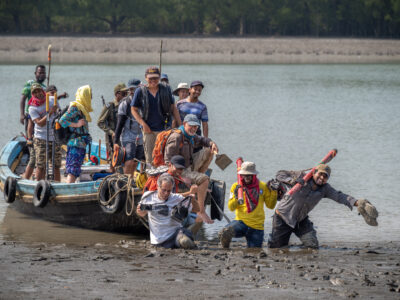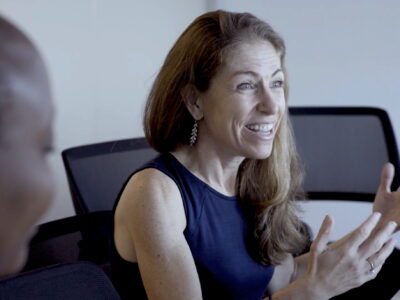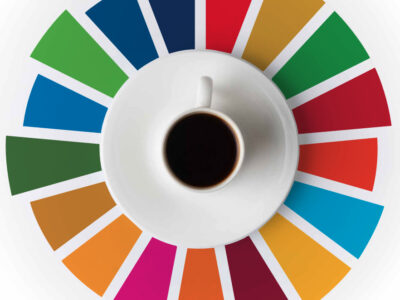
World leaders and thousands of citizens representing public and private sectors will convene in Rio de Janeiro next week for Rio+20, the UN Conference on Sustainable Development. The goal: to exchange ideas for solving some of the world’s most pressing problems; and, to create a roadmap for the future.
The agenda is broad: economic development, environmental sustainability, social inclusion. The participants in the formal talks June 20-22 are hoping to produce a document outlining how the world should move ahead to achieve these things. That could include a set of “sustainable development” goals and commitments – ways to help people climb out of extreme poverty, and to keep our growing population from consuming the planet’s natural resources at an unsustainable rate.
Perhaps even more important will be all the interactions going on around the formal talks – meetings of business and civil society groups, non-governmental organizations, local government representatives and others. They will exchange ideas and policies, make their own commitments to move ahead, and forge new and productive partnerships.
In an article published today in The Lancet, Earth Institute Director Jeffrey Sachs outlined his own ideas for sustainable development goals – the SDGs. He writes about how these goals can build on the Millennium Development Goals, the UN’s set of targets that aim to reduce extreme poverty and boost social well-being in many other ways by 2015.
“The SDGs are an important idea, and could help finally to move the world to a sustainable trajectory. The detailed content of the SDGs, if indeed they do emerge in upcoming diplomatic processes, is very much up for discussion and debate,” Sachs writes. “Their content, I believe, should focus on two considerations: global priorities that need active worldwide public participation, political focus, and quantitative measurement; and lessons from the MDGs, especially the reasons for their successes, and corrections of some of their most important shortcomings.”
He continues: “The SDGs should … pose goals and challenges for all countries—not what the rich should do for the poor, but what all countries together should do for the global wellbeing of this generation and those to come.”
Here’s a quick look at the four goals Sachs proposes in the Lancet article:
SDG 1: by 2030, if not earlier, all the world’s people will have access to safe and sustainable water and sanitation, adequate nutrition, primary health services, and basic infrastructure, including electricity, roads, and connectivity to the global information network.
SDG 2: from 2015 to 2030, all nations will adopt economic strategies that increasingly build on sustainable best practice technologies, appropriate market incentives, and individual responsibility. The world will move together towards low-carbon energy systems, sustainable food systems, sustainable urban areas (including resilience in the face of growing hazards), and stabilisation of the world’s population through the voluntary fertility choices of families supported by health services and education. Countries will adopt a pace of change during these 15 years, individually and with global cooperation, that will enable humanity to avoid the most dangerous planetary thresholds. The world community will help low-income countries to bear the additional costs that they might entail in adoption of sustainable systems for energy, agriculture, and other sectors.
SDG 3: every country will promote the wellbeing and capabilities of all their citizens, enabling all citizens to reach their potential, irrespective of class, gender, ethnic origin, religion, or race. Every country will monitor the wellbeing of its citizenry with improved measurements and reporting of life satisfaction. Special attention will be given to early childhood, youth, and elderly people, addressing the vulnerabilities and needs of each age cohort.
SDG 4: governments at all levels will cooperate to promote sustainable development worldwide. This target includes a commitment to the rule of law, human rights, transparency, participation, inclusion, and sound economic institutions that support the private, public, and civil-society sectors in a productive and balanced manner. Power is held in trust to the people, not as a privilege of the state.
Read the full Lancet article here.
The SDGs are an important idea, and could help finally to move the world to a sustainable trajectory. The detailed content of the SDGs, if indeed they do emerge in upcoming diplomatic processes, is very much up for discussion and debate. Their content, I believe, should focus on two considerations: global priorities that need active worldwide public participation, political focus, and quantitative measurement; and lessons from the MDGs, especially the reasons for their successes, and corrections of some of their most important shortcomings. I have served Secretaries-General Kofi Annan and Ban Ki-Moon as Special Advisor on the MDGs, and look forward to contributing to the SDGs as well. The following suggestions, which I make solely in my personal capacity, include priorities for the SDGs and the best ways to build on the MDG successes and lessons.



